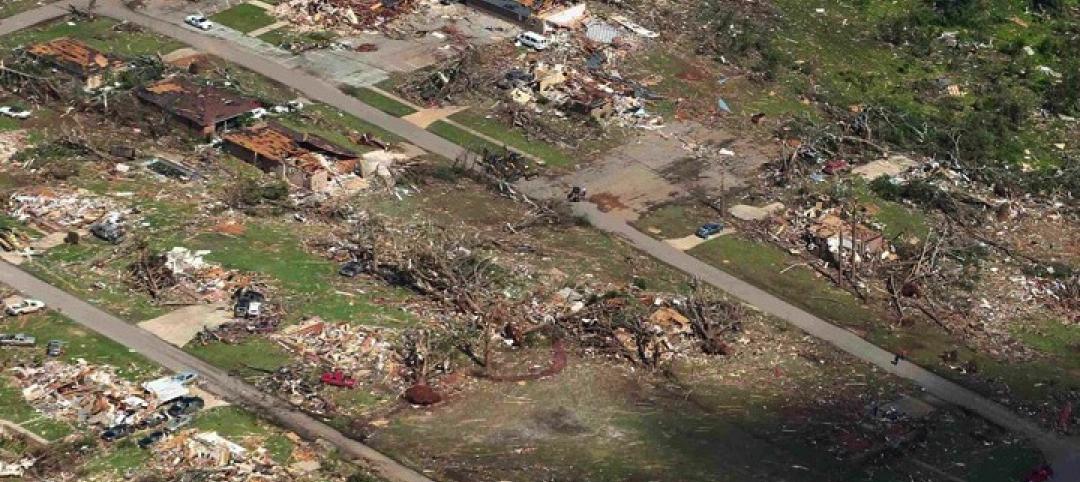The most resilient cities in the world, including six in the U.S., have attributes that would enable them to recover better than others from devastating natural disasters.
A report by Grosvenor examined 50 major cities around the world and ranked them on their vulnerability and adaptive capacity in terms of their infrastructure, community, resources, environment, and climate.
Two-thirds of people will live in urban areas by 2050, according to U.N. estimates, so city planners face daunting challenges to cope with the impact of climate change and population growth. The top three resilient cities are Canadian (Toronto, Vancouver, Calgary), and six of the top 10 are from the U.S., led by Chicago and Pittsburgh.
The report examines five categories of vulnerability: climate, environment, resources, infrastructure, and community. The five categories of adaptability include governance, institutions, technical capacity, planning systems, and funding structures.
“Resources,” encompasses a city’s access to energy, food, and water. “Funding structures” covers the ability to borrow and tap into national and international money.
“The strong U.S. ranking is due to adaptive capacity, where resources, public accountability of elected officials, and the technology of the U.S. are dominating factors,” the report says. “This suggests that U.S. cities will continue to see a pattern of effective public intervention, but often only after a major shock has occurred.”“The least resilient cities are the ones facing the greatest pressure to grow,” the report says. “High rates of population growth, while beneficial to production and culture in the long term, are likely to challenge improved adaptive capacity in the short term.”
(http://www.fastcoexist.com/3029442/the-10-most-resilient-cities-in-the-world)
Related Stories
| Sep 11, 2013
Sports stadium accidents suggest code updates may be necessary to prevent falls
Since 2000, at least three individuals have died as a result of falling from the upper decks of stadiums in the United States. In addition, eight non-fatal falls have occurred in stadiums and arenas over that time.
| Sep 11, 2013
White paper examines Joint Commission requirements for NFPA codes in healthcare
The healthcare industry has experienced great attention from The Joint Commission concerning fire and life safety issues.
| Sep 11, 2013
San Francisco expected to drop firefighter air tank refilling station rule for skyscrapers
San Francisco is poised to drop a requirement that skyscrapers have refill stations so firefighters can recharge their air tanks during a blaze. The city has required that new high-rises have the air refill systems for about ten years.
| Sep 5, 2013
State legislatures continue to raise the bar on green school construction
Since the beginning of 2013, the USGBC has followed more than 125 bills across 34 states that seek to advance healthy, high-performing schools.
| Sep 5, 2013
Construction industry groups create coalition to respond to new OSHA silica rule
A group of 11 construction trade associations has created the Construction Industry Safety Coalition in response to the Occupational Safety and Health Administration’s (OSHA) proposed rule on silica for the construction industry.
| Sep 5, 2013
Red tape delays California county jail construction projects
California authorized $1.2 billion for jail construction in 2007, but not a single county in the state has completed a jail project since then.
| Sep 5, 2013
New CM-at-risk and design-build options create controversy in Ohio
Some contractors say Ohio's new system puts small and midsize construction companies at a disadvantage.
| Sep 5, 2013
Outdated codes slowed disaster recovery in Tuscaloosa, Ala.
Outdated building codes and lack of a master plan slowed the initial rebuilding stage after a devastating tornado leveled parts of Tuscaloosa, Ala. in 2011, according to the city’s mayor.
| Aug 28, 2013
Building collapse prompts legislation to beef up demolition regulations in Philadelphia
Philadelphia City Council will introduce legislation next month to strengthen the regulation of building demolition practices.
| Aug 28, 2013
Rules requiring contractors to boost hiring of veterans criticized
Some businesses are pushing back against proposed rules requiring federal contractors to step up their hiring of returning military service personnel.
















